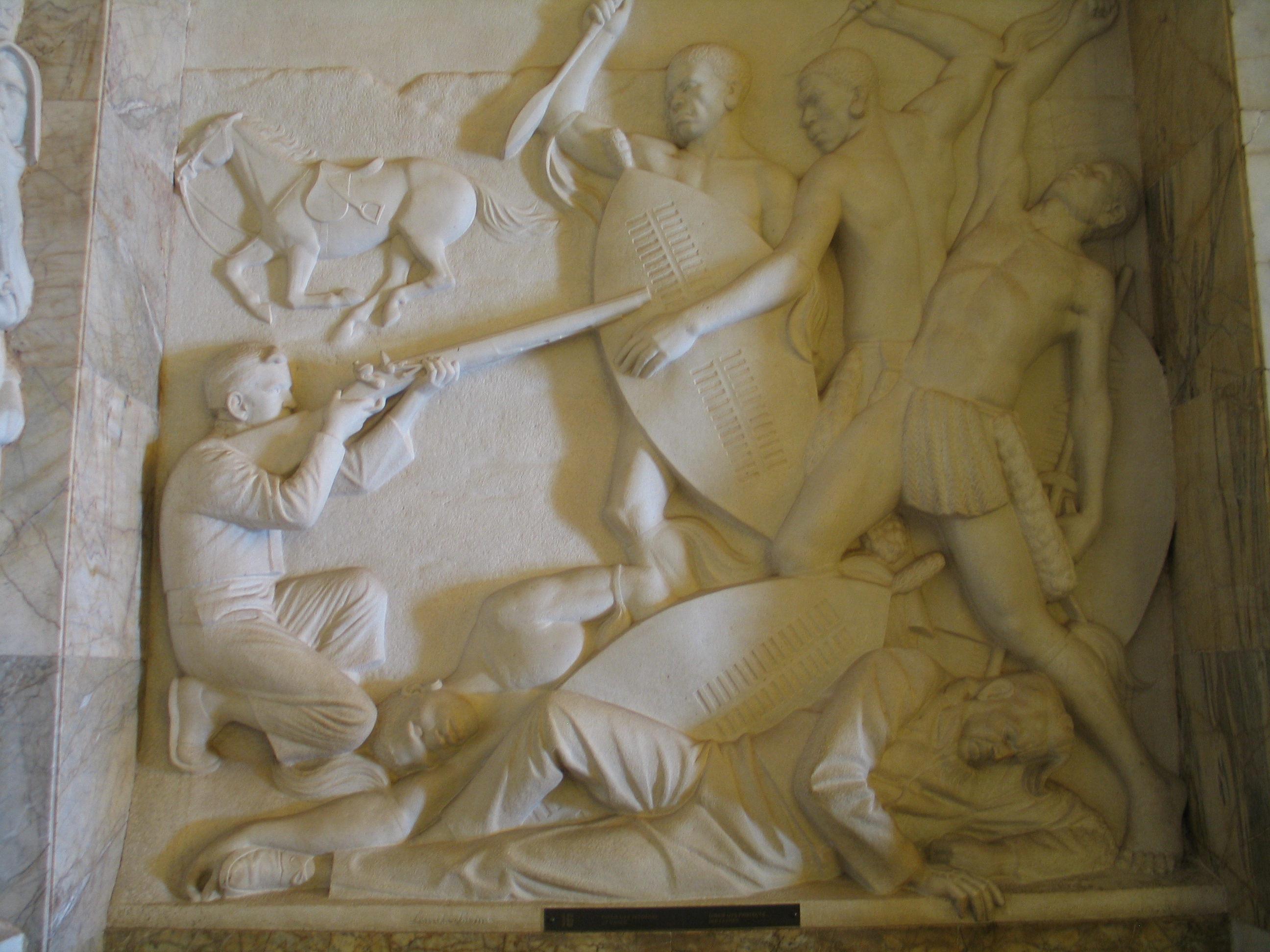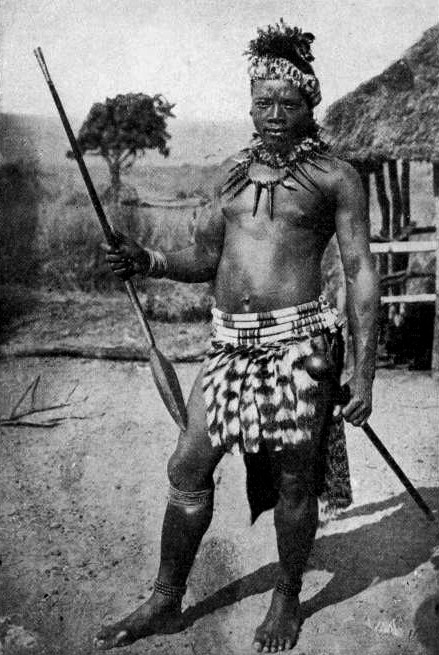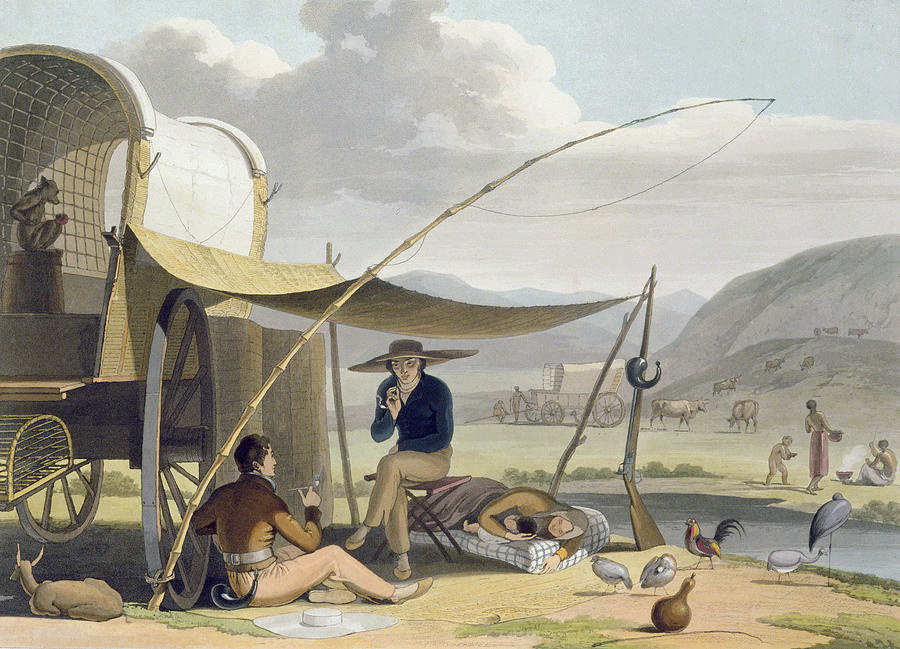|
Dirkie Uys
Dirk Cornelis "Dirkie" Uys (3 March 1823 – 9 April 1838) was a Voortrekker hero during the Great Trek. Uys was born in Swellendam in 1823, the son of Petrus Lafras Uys and Alida Maria Uys. After the massacre of Piet Retief and his men by Dingaan on 6 February 1838, a number of Voortrekker camps were also attacked by the Zulu impis. These Voortrekkers appealed to other treks, particularly those of Piet Uys and Hendrik Potgieter in the Orange Free State, for help. Both treks send out commandos to help, including Uys' fifteen-year-old son, Dirkie. During the subsequent Battle of Italeni, Piet Uys was mortally wounded by an assegai while riding to the rescue of two of his cornered men. The rescue party failed. Opinions of what happened next differ: According to the most common version (mostly told by people who had not been present at the battle), Dirkie Uys was ahead of his father with most of the party when he heard his father ordering one of his men to leave him where h ... [...More Info...] [...Related Items...] OR: [Wikipedia] [Google] [Baidu] |
Voortrekker Monument May 2006, IMG 3035
The Great Trek ( af, Die Groot Trek; nl, De Grote Trek) was a Northward migration of Dutch-speaking settlers who travelled by wagon trains from the Cape Colony into the interior of modern South Africa from 1836 onwards, seeking to live beyond the Cape's British colonial administration. The Great Trek resulted from the culmination of tensions between rural descendants of the Cape's original European settlers, known collectively as ''Boers'', and the British Empire. It was also reflective of an increasingly common trend among individual Boer communities to pursue an isolationist and semi-nomadic lifestyle away from the developing administrative complexities in Cape Town. Boers who took part in the Great Trek identified themselves as ''voortrekkers'', meaning "pioneers", "pathfinders" (literally "fore-trekkers") in Dutch language, Dutch and Afrikaans language, Afrikaans. The Great Trek led directly to the founding of several autonomous Boer republics, namely the South African Re ... [...More Info...] [...Related Items...] OR: [Wikipedia] [Google] [Baidu] |
Orange Free State
The Orange Free State ( nl, Oranje Vrijstaat; af, Oranje-Vrystaat;) was an independent Boer sovereign republic under British suzerainty in Southern Africa during the second half of the 19th century, which ceased to exist after it was defeated and surrendered to the British Empire at the end of the Second Boer War in 1902. It is one of the three historical precursors to the present-day Free State province. Extending between the Orange and Vaal rivers, its borders were determined by the United Kingdom of Great Britain and Ireland in 1848 when the region was proclaimed as the Orange River Sovereignty, with a British Resident based in Bloemfontein. Bloemfontein and the southern parts of the Sovereignty had previously been settled by Griqua and by '' Trekboere'' from the Cape Colony. The ''Voortrekker'' Republic of Natalia, founded in 1837, administered the northern part of the territory through a ''landdrost'' based at Winburg. This northern area was later in federation wi ... [...More Info...] [...Related Items...] OR: [Wikipedia] [Google] [Baidu] |
1823 Births
Eighteen or 18 may refer to: * 18 (number), the natural number following 17 and preceding 19 * one of the years 18 BC, AD 18, 1918, 2018 Film, television and entertainment * ''18'' (film), a 1993 Taiwanese experimental film based on the short story ''God's Dice'' * ''Eighteen'' (film), a 2005 Canadian dramatic feature film * 18 (British Board of Film Classification), a film rating in the United Kingdom, also used in Ireland by the Irish Film Classification Office * 18 (''Dragon Ball''), a character in the ''Dragon Ball'' franchise * "Eighteen", a 2006 episode of the animated television series ''12 oz. Mouse'' Music Albums * ''18'' (Moby album), 2002 * ''18'' (Nana Kitade album), 2005 * '' 18...'', 2009 debut album by G.E.M. Songs * "18" (5 Seconds of Summer song), from their 2014 eponymous debut album * "18" (One Direction song), from their 2014 studio album ''Four'' * "18", by Anarbor from their 2013 studio album '' Burnout'' * "I'm Eighteen", by Alice Cooper common ... [...More Info...] [...Related Items...] OR: [Wikipedia] [Google] [Baidu] |
South African People Of Dutch Descent
South is one of the cardinal directions or compass points. The direction is the opposite of north and is perpendicular to both east and west. Etymology The word ''south'' comes from Old English ''sūþ'', from earlier Proto-Germanic ''*sunþaz'' ("south"), possibly related to the same Proto-Indo-European root that the word ''sun'' derived from. Some languages describe south in the same way, from the fact that it is the direction of the sun at noon (in the Northern Hemisphere), like Latin meridies 'noon, south' (from medius 'middle' + dies 'day', cf English meridional), while others describe south as the right-hand side of the rising sun, like Biblical Hebrew תֵּימָן teiman 'south' from יָמִין yamin 'right', Aramaic תַּימנַא taymna from יָמִין yamin 'right' and Syriac ܬܰܝܡܢܳܐ taymna from ܝܰܡܝܺܢܳܐ yamina (hence the name of Yemen, the land to the south/right of the Levant). Navigation By convention, the ''bottom or down-facing side'' of a ... [...More Info...] [...Related Items...] OR: [Wikipedia] [Google] [Baidu] |
Afrikaner People
Afrikaners () are a South African ethnic group descended from Free Burghers, predominantly Dutch settlers first arriving at the Cape of Good Hope in the 17th and 18th centuries.Entry: Cape Colony. ''Encyclopædia Britannica Volume 4 Part 2: Brain to Casting''. Encyclopædia Britannica, Inc. 1933. James Louis Garvin, editor. They traditionally dominated South Africa's politics and commercial agricultural sector prior to 1994. Afrikaans, South Africa's third most widely spoken home language, evolved as the First language, mother tongue of Afrikaners and most Cape Coloureds. It originated from the Dutch language, Dutch vernacular of South Holland, incorporating words brought from the Dutch East Indies (now Indonesia) and Madagascar by slaves. Afrikaners make up approximately 5.2% of the total South African population, based upon the number of White South Africans who speak Afrikaans as a first language in the South African National Census of 2011. The arrival of Portugal, Portug ... [...More Info...] [...Related Items...] OR: [Wikipedia] [Google] [Baidu] |
Voortrekker Monument
The Voortrekker Monument is located just south of Pretoria in South Africa. The granite structure is located on a hilltop, and was raised to commemorate the Voortrekkers who left the Cape Colony between 1835 and 1854. It was designed by the architect Gerard Moerdijk. On 8 July 2011, the Voortrekker Monument was declared a National Heritage Site by the South African Heritage Resource Agency. History The idea to build a monument in honour of the Voortrekkers was first discussed on 16 December 1888, when President Paul Kruger of the South African Republic attended the Day of the Covenant celebrations at Danskraal in Natal. However, the movement to actually build such a monument only started on 4 April 1931 when the ''Sentrale Volksmonumentekomitee'' (SVK; Central People's Monuments Committee) was formed to bring this idea to fruition. Construction started on 13 July 1937 with a sod-turning ceremony performed by the chairman of the SVK, Advocate Ernest George Jansen, on what ... [...More Info...] [...Related Items...] OR: [Wikipedia] [Google] [Baidu] |
Frieze
In architecture, the frieze is the wide central section part of an entablature and may be plain in the Ionic or Doric order, or decorated with bas-reliefs. Paterae are also usually used to decorate friezes. Even when neither columns nor pilasters are expressed, on an astylar wall it lies upon the architrave ("main beam") and is capped by the moldings of the cornice. A frieze can be found on many Greek and Roman buildings, the Parthenon Frieze being the most famous, and perhaps the most elaborate. This style is typical for the Persians. In interiors, the frieze of a room is the section of wall above the picture rail and under the crown moldings or cornice. By extension, a frieze is a long stretch of painted, sculpted or even calligraphic decoration in such a position, normally above eye-level. Frieze decorations may depict scenes in a sequence of discrete panels. The material of which the frieze is made of may be plasterwork, carved wood or other decorative medium. ... [...More Info...] [...Related Items...] OR: [Wikipedia] [Google] [Baidu] |
Assegai
An assegai or assagai (Arabic ''az-zaġāyah'', Berber languages, Berber ''zaġāya'' "spear", French language, Old French ''azagaie'', Spanish ''azagaya'', Italian ''zagaglia'', Middle English ''lancegay'') is a pole weapon used for throwing, usually a light spear or javelin made up of a wooden handle and an iron tip. Area of use The use of various types of the assegai was widespread all over Africa and it was the most common weapon used before the introduction of firearms. The Zulu people, Zulu, Xhosa people, Xhosa and other Nguni people, Nguni tribes of South Africa were renowned for their use of the assegai. ''Iklwa'' Shaka of the Zulu people, Zulu invented a shorter stabbing spear with a two-foot (0.61 m) shaft and a larger, broader blade one foot (0.3 m) long. This weapon is otherwise known as the ''iklwa'' or ''ixwa'', after the sound that was heard as it was withdrawn from the victim's wound. The traditional spear was not abandoned, but was used to ranged we ... [...More Info...] [...Related Items...] OR: [Wikipedia] [Google] [Baidu] |
Battle Of Italeni
The Battle of Italeni was a battle that took place at in what is now KwaZulu Natal province, South Africa, between the Voortrekkers and the Zulus during the period of the Great Trek. Background After the massacre of Piet Retief and his men by Dingane on 6 February 1838, a number of Voortrekker camps were also attacked by the Zulu impis. These Voortrekkers appealed to other treks, particularly those of Piet Uys and Hendrik Potgieter in the Orange Free State, for help. Both treks sent out commandos to help. The two groups met on the banks of the Blaukraans River, where a council of war was held. During this meeting Uys was elected as "General Field Commandant" by those present - becoming, in effect, the first elected Boer Commandant-General. Potgieter—a natural leader—objected to this and stated that he and his men were not prepared to serve under any other leader. As a compromise, it was decided that each commando would remain under its own leader, but that both parties ... [...More Info...] [...Related Items...] OR: [Wikipedia] [Google] [Baidu] |
Commando
Royal Marines from 40 Commando on patrol in the Sangin">40_Commando.html" ;"title="Royal Marines from 40 Commando">Royal Marines from 40 Commando on patrol in the Sangin area of Afghanistan are pictured A commando is a combatant, or operative of an elite light infantry or special operations force, specially trained for carrying out raids and operating in small teams behind enemy lines. Originally "a commando" was a type of combat unit, as opposed to an individual in that unit. In other languages, ''commando'' and ''kommando'' denote a "command", including the sense of a military or an elite special operations unit. In the militaries and governments of most countries, commandos are distinctive in that they specialize in unconventional assault on high-value targets. In English, to distinguish between an individual commando and a commando unit, the unit is occasionally capitalized. Etymology From an ancient lingual perspective the term commando derives from Latin ''commen ... [...More Info...] [...Related Items...] OR: [Wikipedia] [Google] [Baidu] |
Hendrik Potgieter
Andries Hendrik Potgieter, known as Hendrik Potgieter (19 December 1792 – 16 December 1852) was a Voortrekker leader and the last known Champion of the Potgieter family. He served as the first head of state of Potchefstroom from 1840 and 1845 and also as the first head of state of Zoutpansberg from 1845 to 1852. Beyond the Orange River Potgieter and his party moved inland to the present Free State, where they signed a treaty with the leader of the Barolong, Moroka. The treaty stipulated that Potgieter would protect the Baralong against the Matabele raiders, in exchange for land. The tract of land was from the Vet River to the Vaal River. The Matabele leader, Mzilikazi, was threatened by the white incursion into what he saw as his sphere of influence, which led to the Matabele's attack on the Potgieter laager in October 1836, at Vegkop, near the present-day town of Heilbron. The attack was beaten off, but the Matabele made off with most of the trekker oxen, crucial draugh ... [...More Info...] [...Related Items...] OR: [Wikipedia] [Google] [Baidu] |
Voortrekker
The Great Trek ( af, Die Groot Trek; nl, De Grote Trek) was a Northward migration of Dutch-speaking settlers who travelled by wagon trains from the Cape Colony into the interior of modern South Africa from 1836 onwards, seeking to live beyond the Cape's British colonial administration. The Great Trek resulted from the culmination of tensions between rural descendants of the Cape's original European settlers, known collectively as ''Boers'', and the British Empire. It was also reflective of an increasingly common trend among individual Boer communities to pursue an isolationist and semi-nomadic lifestyle away from the developing administrative complexities in Cape Town. Boers who took part in the Great Trek identified themselves as ''voortrekkers'', meaning "pioneers", "pathfinders" (literally "fore-trekkers") in Dutch and Afrikaans. The Great Trek led directly to the founding of several autonomous Boer republics, namely the South African Republic (also known simply as the '' ... [...More Info...] [...Related Items...] OR: [Wikipedia] [Google] [Baidu] |







